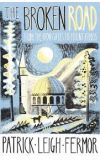
17 Sep 2013 21:09:50
In 1962, a US magazine asked him to write about walking – a 5,000-word commission that spawned a trilogy. A Time of Gifts was published in 1977. Between the Woods and the Water, which appeared in 1986, ended with the promise that the story would be continued. Rumours as to whether Leigh Fermor had managed to complete his trilogy, or whether he had even started the conclusion, have circulated for the past couple of decades.
It turns out there was a manuscript and it picks up where the previous one ended – at the water, the Danube, and the Iron Gates, a gorge at the Romanian-Bulgarian border. It takes Leigh Fermor not to Istanbul, the intended final destination of what he called "the Great Trudge", but to Burgas, 50 miles from the Turkish border.
Although Leigh Fermor was still rewriting the manuscript shortly before his death, the work was problematic, for reasons Artemis Cooper makes clear in her brilliant recent biography of the man. Now she and the travel writer and novelist Colin Thubron have prepared the work for publication. This, clearly, has involved more than spell-checking, although they claim that "there is scarcely a phrase that is not his".
The first two volumes were a joy to read, not least for Leigh Fermor's ability to recapture in later life the intense excitement of being a young man lighting out. The latest book offers similar joys. His allowance of £1 a week – bank notes arriving like manna at post offices along the way – was enough to live modestly. Travelling mostly on foot, in leather jacket, knee breeches and puttees, with backpack, Hungarian walking stick and "uncompromising" boots, carrying two books of verse in the backpack and a head full of literature and history, he has his fair share of luck and adventure in a continent that was still a mystery. There are nights in shepherds' huts, down-at-heel hotels, palaces, and a brothel he mistook for an inn. And while his older self clearly enjoyed writing about the nights of revelry around campfires with belly-dancing Greek fishermen and other wild characters, he was also happy to laugh at the young Leigh Fermor – for not realising that the woman who welcomed him so warmly into the brothel expected more from him than his head on a pillow.
Also evident are another of the joys of the earlier books – the pyrotechnics of his writing. Exuberance is expressed in heightened suggestions: a cat is panther-like, a silence falls "like angels flying overhead" and swifts make a sound like scissors in a barber shop. The descriptions of waking in unfamiliar places are so seductive that even the most home-hugging reader will long to wake somewhere unknown. And some of the evocations of landscapes and views will live long in the memory, including one of a muezzin calling from a mosque and another of the town of Tirnovo, with its "winged insurrection of houses plumed by belfries and trees".
The first two books were written without the help of original notes, which had been lost; The Broken Road is based partly on a diary that was returned to Leigh Fermor in 1965. So instead of writing what the editors call "memory-spurred recreations", we see the older man trying to guess what his younger self did or why he did it. There is also retrospective comment on Europe between the wars from an author who knows that the rise of the Nazis and the coming cold war are about to transform the lives of most people he meets.
Leigh Fermor completed his physical journey in Istanbul on the last day of 1934, then continued to the monasteries of Mount Athos in Greece. The literary journey concludes without reaching its goal, hence the book's title. The editors have included sketchy diary entries for Istanbul and more fully written descriptions of Mount Athos, although Leigh Fermor was not convinced about putting them in his story, and with good reason.
The bulk of The Broken Road was written 30 years after the journey. I am reading it 50 years after it was first put down. While it is not the literary masterpiece it might have been had Leigh Fermor been able to work his magic, it captures the joy of the open road, the fresh view he gives of Europe as it began to show the stresses that led to world war, and the glimpses of a long-lost life and innocence.

